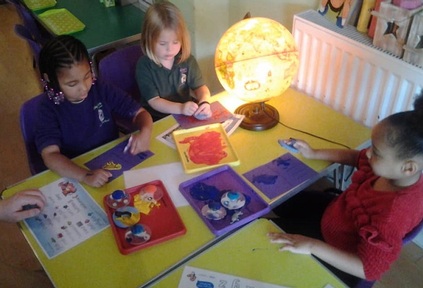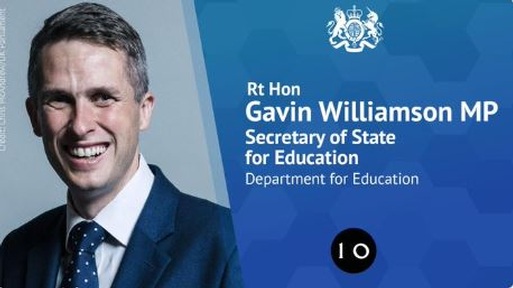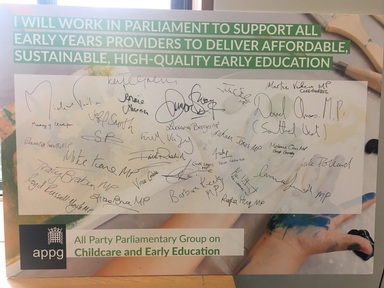Guidance for early years professionals integrating health and education reviews for two-years-olds issued
 A resource pack has been produced to support early years professionals overseeing the integration of health and education development reviews for two-year-olds, due to be introduced in September 2015.
A resource pack has been produced to support early years professionals overseeing the integration of health and education development reviews for two-year-olds, due to be introduced in September 2015.
The review will integrate separate health and educational checks already taking place for children at the age of two to provide better early intervention and a joined up approach which measures development at a crucial point in the early years.
The review integrates the Early Years Foundation Stage (EYFS) Progress Check with the Healthy Child Programme (HCP) combining the two where possible to reduce the risk of duplication and confusion in making referrals for children who need more support.
The Department of Education published a report on a two year pilot scheme of the integrated review approach which found parents preferred a joined up approach and as a result take up of the reviews increased. The pilot took place from 2012-13 and involved ten different locations.
Complete picture
Announcing the move to integrate health and early years reviews, health minister Dr Dan Poulter said: "This report shows that integrating health and early years reviews is better for children and their parents - giving a more complete picture of their child’s development and supporting children to the best start in life."
Childcare and education minister Sam Gyimah said: "The early years count and this new approach will reassure parents they have the information they need to support their children when they are growing up to give them the best possible start in life.
"This is a fantastic example of Government departments working together to improve the services on offer to parents."
Parents will be informed of any developmental issues raised in the review on their two-year-old child’s progress, a key age when behavioural problems or issues such as speech delay can begin to emerge.
Positive step
Purnima Tanuku, chief executive of the National Day Nurseries Association said the move to integrate health and early years reviews for two and two and half-year-olds was a positive step.
She said: “Bringing health and early years together around the child will give a much more informed review of their development and any additional needs they may have.
“A large number of children are cared for in PVI nurseries including 96 per cent of two-year-olds taking up funded places. Nurseries have close relationships with the children and families they care for and a child’s key person will have a detailed understanding other health professionals with comparatively intermittent contact won’t. 
"As early intervention is vitally important for children who have additional needs this combined review, which we would like to see led by the child’s key person, will help identify any extra support a child and their family may need as early as possible."
The resources pack has bee produced to support early years professionals responsible for coordinating the new type of review. Created and launched by the National Children’s Bureau (NCB) guidance highlights there is a no ‘one size fits all’ method for delivering effective integrated reviews.
Integrated reviews
Aimed at professionals looking to integrate their current review method with the HCP or EYFS Progress Check, the support pack has been based on a research study commissioned by the Department for Education that looked into five local authorities to understand the challenges facing integration.
NCB chief executive, Anna Feuchtwang said: “It is not only a matter of health and early education professionals coming together to review a child’s progress. An integrated review needs to fully involve and include the views of parents, who have in-depth knowledge of their child. If any issues are identified, it is then essential that the appropriate services are in place so that young children can get the early intervention they need straight away, well before school starting age.”
Supporting development
Liz Bayram, chief executive of the Professional Association for Childcare and Early Years(PACEY), welcomed the announcement of the integrated review, and said:
“We fully support the move to integration. It marks a big step forward in the changing status of childcare professionals and recognises their contribution to not only children’s educational development but also their health and wellbeing. Health visitors and early years practitioners have specialist understanding of children’s progress that complement each other. Together they will ensure far greater support for children at this crucial stage of development.
“What is clear from the pilot is the importance of shared language and understanding between health visitors and childcare settings, mutual respect and recognition of each other’s knowledge and expertise. For integrated review to be effective, health visitors will need to value the insight of their childcare colleagues as well as recognise the strong partnership childcare professionals have with parents using their setting. This partnership will be critical in encouraging parents to take part in the review and to supporting any parent if a review identifies a developmental concern for their child.”
The NCB guidance pack outlines considerations and recommendations for delivering an integrated process, providing advice on issues such as staffing models, assessment tools, information sharing and engaging parents.
The NCB is a children’s charity which has been supporting children and their families for over 50 years, encouraging social change and influencing government policy on behalf of the most vulnerable.
Latest News Analysis
 06-Aug-19
Nursery boss says 'cultural capital has always been important, it shouldn't be new'
06-Aug-19
Nursery boss says 'cultural capital has always been important, it shouldn't be new'
 25-Jul-19
Gavin Williamson appointed education minister
25-Jul-19
Gavin Williamson appointed education minister
 17-Jul-19
Flexible Working Bill for all jobs gets MPs approval - delighting parents, disabled and carers
17-Jul-19
Flexible Working Bill for all jobs gets MPs approval - delighting parents, disabled and carers
 03-Jul-19
MPs blame government policies for nursery closures in deprived areas
03-Jul-19
MPs blame government policies for nursery closures in deprived areas
 14-May-19
Number of schools wanting to pilot Reception Baseline Assessments 'embarrassingly low'
14-May-19
Number of schools wanting to pilot Reception Baseline Assessments 'embarrassingly low'